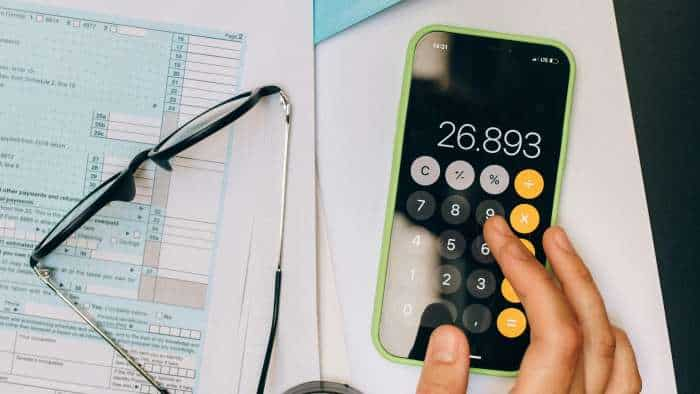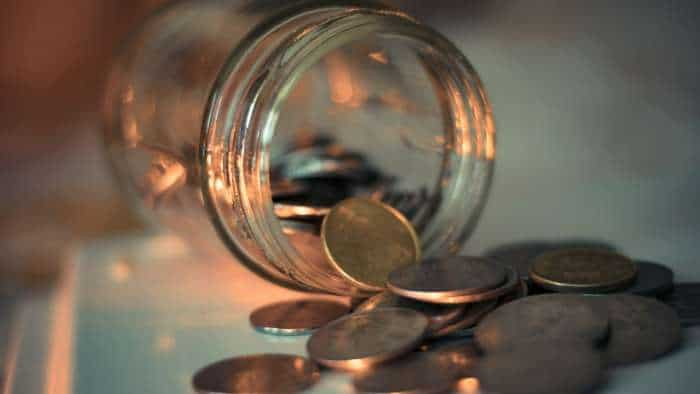No fixed target for blending aviation fuel, Scindia informs Parliament
The central government has not fixed any target for blending sustainable fuel (biofuel) into traditionally-used aviation fuel, Union Minister of Civil Aviation Jyotiraditya Scindia informed Parliament on Thursday.
)
The central government has not fixed any target for blending sustainable fuel (biofuel) into traditionally-used aviation fuel, Union Minister of Civil Aviation Jyotiraditya Scindia informed Parliament on Thursday. The government had notified the National Policy on Biofuels-2018 to promote and encourage the use of biofuels including bio-CNG, bio methanol, DME, bio-hydrogen, and bio-jet fuel.
Meanwhile, India increased the ethanol blending in petrol from 1.53 per cent in 2013-14 to 10.17 per cent in 2022 and also advanced its target to achieve 20 per cent from earlier 2030 to now 2025-26.
India has already rolled out 20 per cent blended fuel, though, in a phased manner, in April 2023.
E20 blending -- a blend of 20 per cent ethanol and 80 per cent fossil-based fuel -- is being introduced in the country with the aim to reduce the country's oil import cost, energy security, lower carbon emission, and better air quality, among others.
Further, the minister was asked whether the government has earmarked funds for research and development/technology transfer of sustainable aviation fuel.
Minister Scindia in his reply in Lok Sabha said, “The Ministry of Civil Aviation has not earmarked any funds for research and development/technology transfer of SAF.”
In reply to a separate question on the rise in airfares, the minister today said the recent increase in airfare noticed in India was driven by seasonality, demand-supply constraints, besides the rise in fuel prices.
“The recent increase in airfare has been noticed in a few sectors, primarily driven by seasonality and demand-supply constraints. Further, the increase in airfare is also attributable to increase in fuel prices,” Scindia said in a written reply, adding that the government took steps to sensitize the airlines.
“The airfares in these select sectors (where there was uptick) are monitored on daily basis and as a result of which they have shown a declining trend.”
“Directorate General of Civil Aviation (DGCA) has established Tariff Monitoring Unit which monitors fares on select sectors on random basis.
This ensures that the airfares charged by the airlines are within the established tariff of the airlines, which is displayed on their website,” he added.
Notably, airfares in India are market-driven and are neither regulated nor established by the government.
Airlines are free to fix reasonable tariffs considering all relevant factors, including the cost of operation, characteristics of service and reasonable profit.
Further, asked what steps government has to bring legislation for uniform fares for air travel, Scindia responded saying there is no proposal at present to interfere with the existing regulatory framework on airfare.
On June 5, Minister Scindia chaired a meeting with the Airlines Consultative Group to discuss airfares, where he urged the airlines to "self-regulate" airfares and maintain a reasonable price level.
India's low-cost carrier Go First suspending all its flight operations in early June citing operational reasons -- it submitted for voluntary insolvency in early May – also likely to have added to the pressure in airfares.
Get Latest Business News, Stock Market Updates and Videos; Check your tax outgo through Income Tax Calculator and save money through our Personal Finance coverage. Check Business Breaking News Live on Zee Business Twitter and Facebook. Subscribe on YouTube.
03:47 PM IST











 Vedanta Aluminium, PwC in partnership to reduce carbon emissions in Odisha's Jharsuguda
Vedanta Aluminium, PwC in partnership to reduce carbon emissions in Odisha's Jharsuguda India makes clean energy push at G20 with global biofuel alliance
India makes clean energy push at G20 with global biofuel alliance Oil Minister Hardeep Singh Puri says India will start experimental supplies of 20% ethanol blended petrol next few days
Oil Minister Hardeep Singh Puri says India will start experimental supplies of 20% ethanol blended petrol next few days